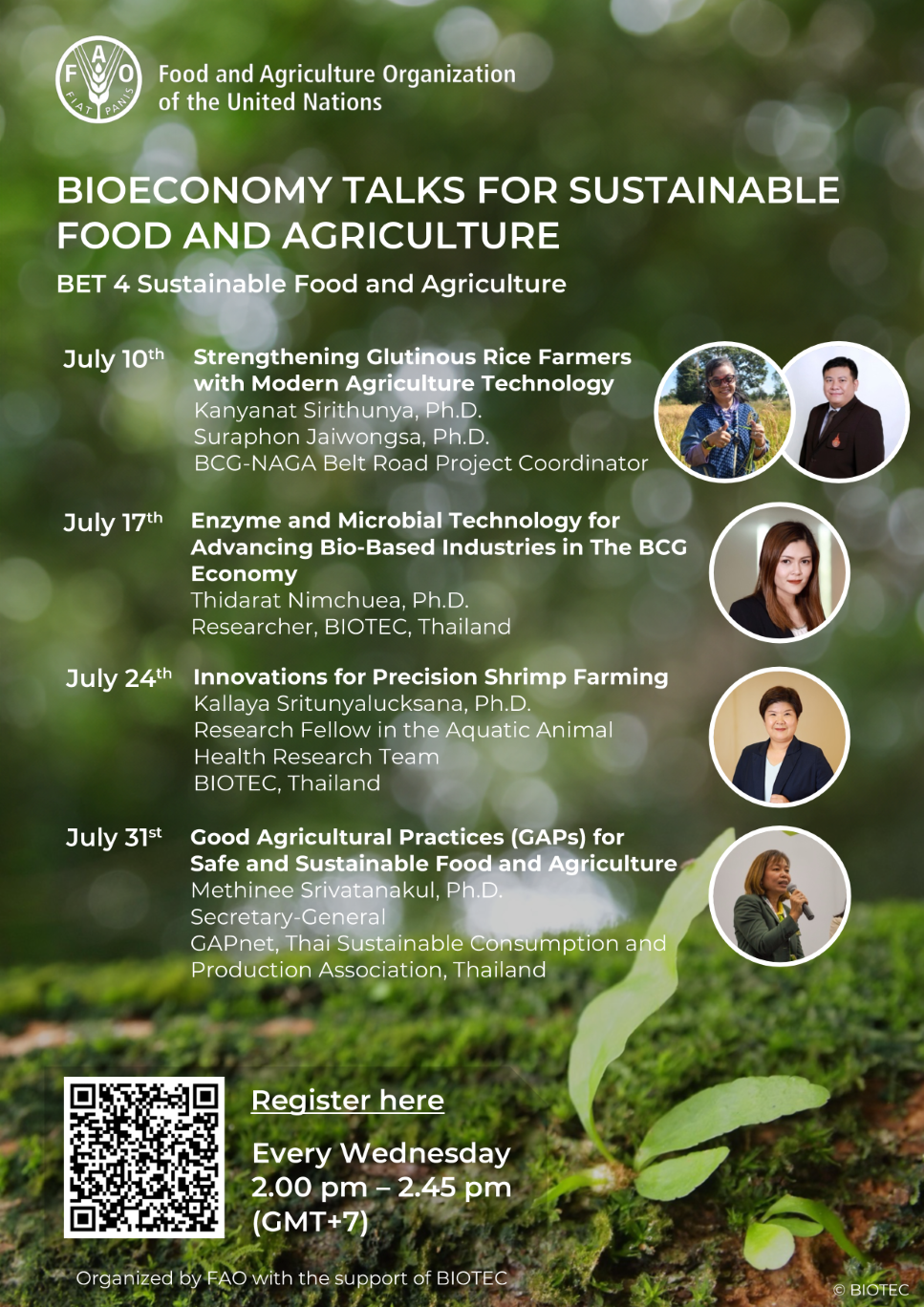BIOTEC, NSTDA would like to invite you to attend the Bioeconomy Talks for Sustainable Food and Agriculture organized by the Food and Agriculture Organization of the United Nations (FAO) with support from National Center for Genetic Engineering and Technology (BIOTEC). The talks are part of the activities under FAO-funded project on "Advancing Bioeconomy in ASEAN promoting Sustainability and Partnership with Insights and experience in Thailand” led by Dr. Warinthorn Songkasiri, Director of Biochemical Engineering and Systems Biology Research Group, BIOTEC.
From July 2024 onwards, the talk will be organized every Wednesday, revolving around bioinnovations and how they help advances bioeconomy of various countries.
The first talk on July 10, 2024 at 14:00 (Thailand Standard Time) is on "Strengthening Glutinous Rice Farmers with Modern Agriculture Technology" by Dr. Kanyanat Sirithunya, BCG-NAGA Belt Road project coordinator, and Dr. Suraphon Chaiwongsar of Rajamangala University of Technology Lanna, Lampang and a working group member of BCG-NAGA Belt Road .
The BCG-Naga Belt Road project aims to transform Thailand's agriculture by focusing on glutinous rice across 4 provinces using modern agricultural technology, value chain strengthening, and waste upcycling. Over 3,200 farmers, covering 24,152 rai of planting area, have benefited from practices like organic farming and the use of Azolla to reduce greenhouse gas emissions.
The project has enabled farmers in the Phon Sawan district of Nakhon Phanom to practice organic farming in compliance with international organic standards, resulting in a 1-2 baht/kg higher selling price. It has also led to a reduction of 419.85 tons of greenhouse gas emissions from incorporating Azolla in rice cultivation and a 9.75-ton reduction from using clean energy.
The initiative enhances income and livelihood by promoting eco-friendly products, leveraging cultural heritage for tourism, and providing extensive training programs for agribusinesses.
The project exemplifies a sustainable model for agricultural and economic development, integrating local resources and cultural identity to boost both agriculture and tourism.










